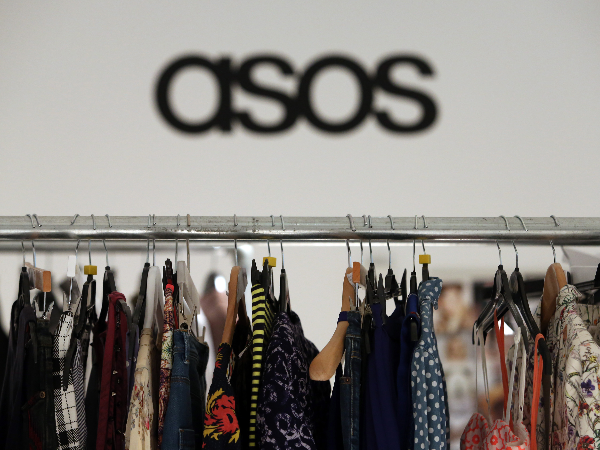Best UK shares to buy in November 2022
Shoe Zone, ASOS, and Burberry could be three UK shares to buy next month as the country’s political uncertainty continues.
 Source: Bloomberg
Source: Bloomberg
As the governmental situation deteriorates, it’s not becoming easier to select some of the best UK shares to buy.
It’s possibly not a stretch to consider that the UK political system in in flux. Prime Minister Liz Truss has resigned, and a new Conservative leader is expected to be appointed next week.
Given the range of candidates likely on offer, including Johnson, Sunak, and Mordaunt, it’s hard to make any kind of hard predictions over where the wider UK markets will go. And despite the vast polling gap between Britain’s two largest political parties, a general election appears a sound possibility in the near future.
This compounds the investment case complexity for all UK-based instruments.
However, some fundamentals will stay the same. CPI inflation has edged up to 10.1%, and the base rate is expected to exceed 5% by mid-2023. And whoever takes up residence in Downing Street has had fair warning of what lax fiscal policy leads to.
This means it’s still possible to identify what could be some of the best UK shares to buy next month. Three in the clothing sector look like possible opportunities, with a split across value, mid-range, and luxury offerings.
Best UK shares to buy in November 2022
Shoe Zone (LON: SHOE)
Shoe Zone shares are up 117% over the past year to 176p. Despite dipping since its 196p record in early August, the FTSE AIM stock could be an excellent stock pick due to its core value offering in a time of rising inflation amid the deepening cost-of-living crisis.
Having now sold nearly 20 million pairs of shoes at an average of £12 a pair, Shoe Zone boasts a unique selling point; shoes are a necessity, and it’s hard to find them cheaper than in its 368 shops. The company even often sells shoes without a box to reduce price points further.
In interim results in May, revenue rose by a whopping 73% year-over-year to £69.9 million, while profit before tax increased to £3.1 million, up from a £2.6 million loss in H1 2021.
And unlike many other traditional high street shops, it’s managing the transition to online impressively well. Digital revenues had increased by 114.5% compared to pre-pandemic levels to £11.8 million.
In a recent investor update, the company enthused that trading has continued to exceed expectations due to strong demand for both summer and ‘back to school’ products, with margin improvements from rent reductions and supply chain management benefitting the bottom line.
Accordingly, next week’s full-year results are expected to show at least £10.5 million of adjusted profit before tax, a full £1 million more than previously anticipated.
 Source: Bloomberg
Source: Bloomberg
ASOS (LON: ASOS)
ASOS shares are a different kettle of fish. The FTSE 250 company is down 81% over the past year, and at 518p, 21% in the past month alone.
It’s easy to be sceptical about this contrarian pick, but ASOS is a cyclical stock, and has peaked more than tenfold higher than its current valuation three times over the past decade. An eventual recovery could be on the cards.
In this month’s full-year results, the fast fashion company saw sales rise by a meagre 1% to £3.94 billion and recorded a £32 million pre-tax loss compared to a £177 million profit in the prior financial year.
Worse, it expects to generate a loss in the first half of this financial year, while it now holds net debt of £152 million, having burnt through its £200 million cash pile. In further bad news, it’s writing off £100 million of stock.
However, this could just be a strategy problem, and one that CEO José Antonio Ramos Calamonte might be able to fix. Sales rose by 7% in the UK and 10% in the US, led by Topshop brand sales more than doubling. In addition, sales of dresses and tailoring also more than doubled.
The CEO acknowledges that ASOS has become too complex, has loosened its grip on cost controls, and become too ‘overstretched globally.’ He also noted the problem with using discounting to attract shoppers at the expense of building brand awareness.
ASOS has now agreed a £650 million banking facility to give it the ‘financial flexibility’ to change strategy, including cutting costs, improving stock management, and ‘refreshing the culture’ of the business. This could include selling via other websites overseas, exiting some markets, or sharing warehouse space.
Calamonte remains adamant that ASOS can ‘emerge from these turbulent times as a more resilient and agile business,’ despite the current volatility.
Burberry (LON: BRBY)
Burberry shares have remained essentially flat over the past five years, despite significant volatility along the way. The FTSE 100 company could be an excellent UK stock to buy in November due to its luxury image.
Fundamentally, its inflation resistant. Burberry’s cheapest jacket in the UK retails at £550, and the kinds of customers worrying about the rising price of bread are unlikely to be the same ones buying at this price point. Indeed, Burberry could even increase prices soon, as it plans to achieve an operating margin of 24% and ‘high single digit revenue growth’ by FY24.
In Q1 results, comparable store sales increased by only 1%. However, this hides the impact of lockdowns in China, Burberry’s largest market. Stripping out the country leaves store sales growth of 16%, while EMEIA store sales grew by a significant 47%.
As CEO Jonathan Akeroyd enthuses, ‘our performance in the quarter continued to be impacted by lockdowns in Mainland China… while the current macro-economic environment creates some near-term uncertainty, we are confident we can build on our platform for growth.’
When the Chinese lockdown cycle concludes, Burberry could emerge a stronger company, especially as it welcomes Daniel Lee as Chief Commercial Officer. Lee has enjoyed previous success in revitalising Bottega Venneta. However, ASOS is losing seasoned COO and CFO Julie Brown early next year.
Of course, the Chinese economy is not immune to wider global recessionary factors, especially given its GDP figures delay, mortgage market problems, and energy shortages. Burberry generates more than 50% of its revenue in the country, and a serious recession could damage its prospects in the medium term.
Trade and invest in over 17,000 UK, US and global shares from zero commission with us, the UK’s No.1 trading provider.*
Learn more about trading or investing in shares with us, open an account to get started today, or learn about our partnership with the NFL.







0 Comments
Recommended Comments
There are no comments to display.
Create an account or sign in to comment
You need to be a member in order to leave a comment
Create an account
Sign up for a new account in our community. It's easy!
Register a new accountSign in
Already have an account? Sign in here.
Sign In Now